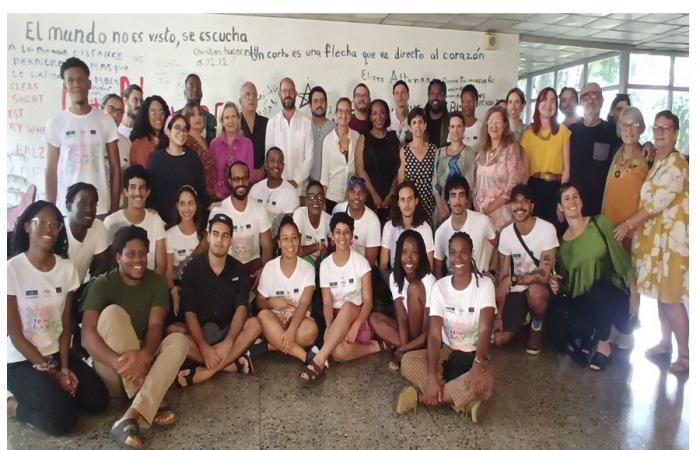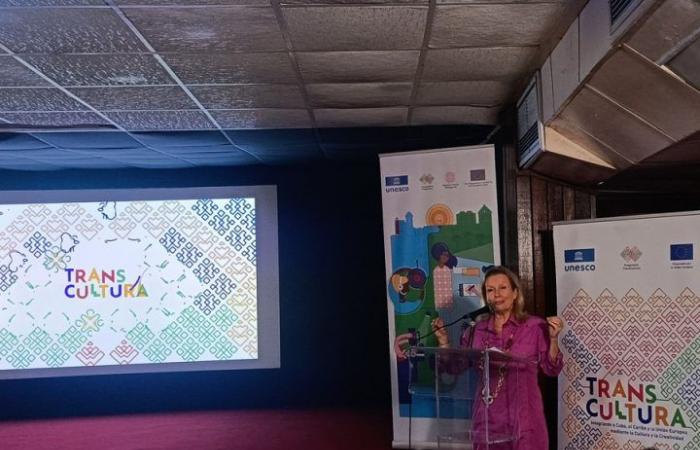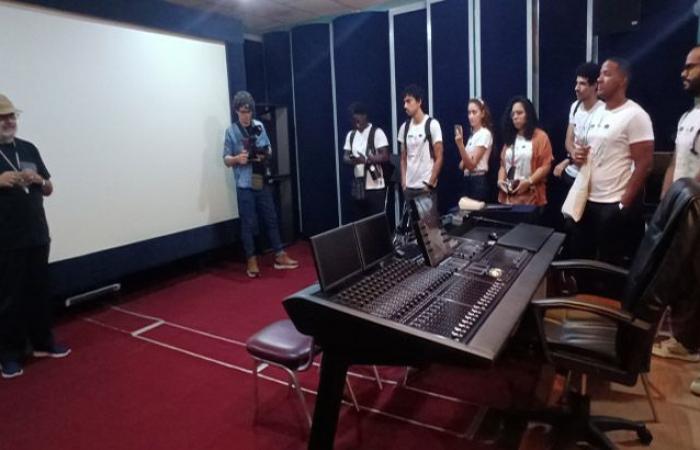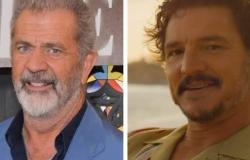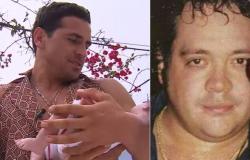Participants in the Transcultura program courses that meet from June 17 to 28 at the International Film and Television School of San Antonio de los Baños.
Photo: IPS Cuba Archive
Havana, June 26.- The Transcultura program allows “to bring together different people, empower them, provide them with tools so they can improve the economy and support the development of “our vibrant culture in the Caribbean,” according to Valierie Alcaide, 28, actress and model born in Haiti.
She is one of the 24 beneficiaries of the new round of in-person courses of the Caribbean Pole of Cultural Training promoted by Transcultura: Integrating Cuba, the Caribbean and the European Union through Culture and Creativity.
This is an initiative implemented by the United Nations Educational, Scientific and Cultural Organization (UNESCO) with financing from the European Union (EU).
2024 courses in Cuba
Based at the International School of Cinema and Television (EICTV), in San Antonio de los Baños, in the western province of Artemisa, courses on cinematographic sound mixing in stereophonic and multichannel formats, soundtrack design and multichannel music recording are They take place from June 17 to 28.
Participating in the opening were Fernando León, Cuban Vice Minister of Culture; Anne Lemaistre, director of the UNESCO Regional Office in Havana; Pedro Campo, head of Cooperation of the EU Delegation in Cuba.
Also attending were Dulce Buergo, president of the Cuban National Commission of UNESCO; Susana Molina, director of the EICTV, and representatives of the diplomatic corps of Caribbean countries.
Buergo recognized the efforts of the actors involved in the Transcultura program, in the midst of a complex context, both globally and in Cuba. He referred to the positive impact of the courses on young participants and considered it an “example of triangular cooperation and in favor of the Caribbean.”
Lemaistre highlighted the significance of EICTV for Cuba, UNESCO and the world as a forum for cultural diversity and global cinema education, which gives the opportunity to diverse voices from around the world to express themselves and tell their stories in their own way.
“This time it is the voices of the Caribbean that we are welcoming here,” he said. In addition, he thanked them for the creative opportunity and support for “this dream of bridges between the Caribbean and Europe” to promote the talents of the region.
Young voices from the Caribbean
Jhonson Ogando, 25 years old, a film graduate, arrived in San Antonio de los Baños from the Dominican Republic. For him, “the course has shed a lot of light on sound, music, and creating soundtracks for my film projects, such as shorts, feature films, and documentary and fiction series.”
From Barbados, Rhianna Smith, 23, who works at the National Register of Historic Sites, expressed her happiness at acquiring the skills and knowledge offered in the Transcultura program courses. “She will allow my content to have international standards and impact,” she said.
Sergio de Jesús Figueredo, 23, one of the four scholarship recipients from Cuba, said: “The course really exceeded my expectations. I work in music production, but I had never dealt with such high-quality equipment.”
For her part, film student Clinealle Lett, 20, from Trinidad and Tobago, considered: “it is very interesting to come here because in my country we do not have the facilities for music and these days I have learned a lot about the mixture of sound”.
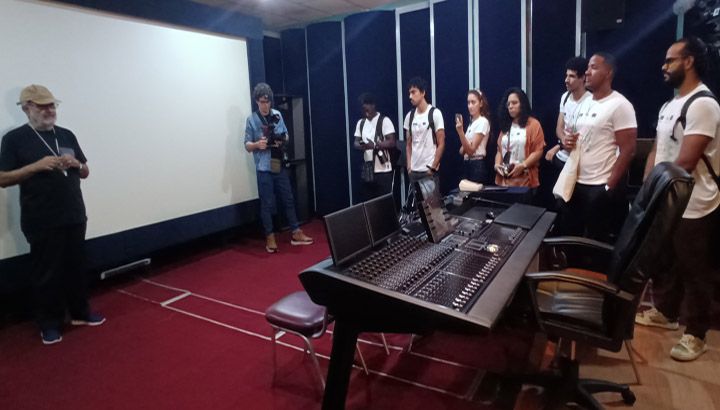
Benefits for people and institutions
More than 1,600 young people have participated in the actions of the Transcultura program and about 600 have been trained in the courses, Lemaistre said.
He also explained that the initiative made it possible to renovate the EICTV sound studios, which now have recording and mixing desks and post-production equipment valued at 600,000 euros (650,000 US dollars).
According to Gerónimo Labrada, sound professor, “this equipment places the school on par with the best sound post-production institutions in Latin America and will not only benefit young people from the Caribbean, but also hundreds of students who participate in the regular course and other filmmakers.”
With funding of 15 million euros, the Transcultura program promotes the professional development of young people in the cultural and creative industries through exchange and cooperation in the region and with Europe, taking advantage of the rich Caribbean cultural diversity.
The 17 beneficiary countries of the initiative are Antigua and Barbuda, Bahamas, Barbados, Belize, Cuba, Dominica, Dominican Republic, Grenada, Guyana, Haiti, Jamaica, Montserrat, Saint Kitts and Nevis, Saint Lucia, Saint Vincent and the Grenadines, Suriname and Trinidad and Tobago. (2024)

